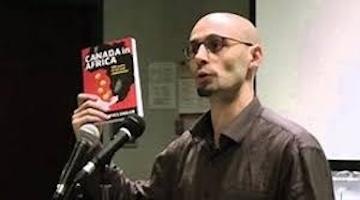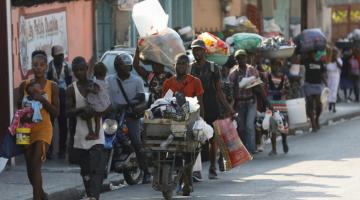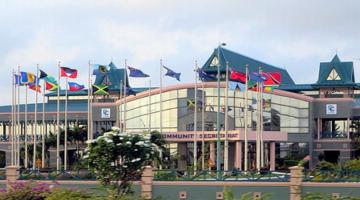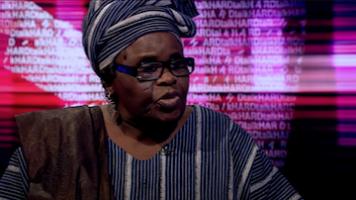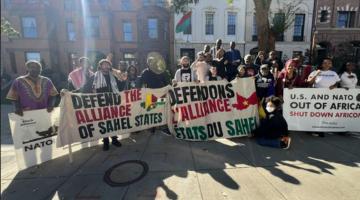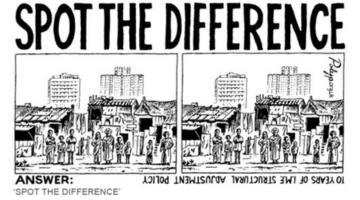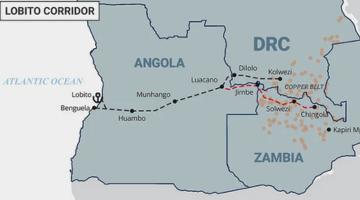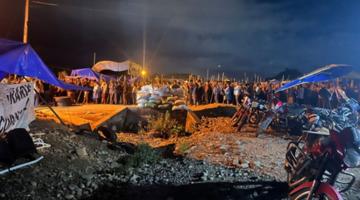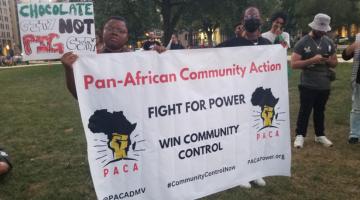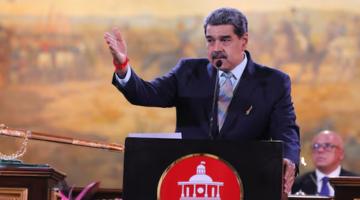In this series, we ask acclaimed authors to answer five questions about their book. This week’s featured author is Robtel Neajai Pailey. Pailey is Assistant Professor in International Social and Public Policy at the London School of Economics and Political Science. Her book is Development, (Dual) Citizenship and Its Discontents in Africa: The Political Economy of Belonging to Liberia.
Roberto Sirvent: How can your book help BAR readers understand the current political and social climate?
Robtel Neajai Pailey: Development, (Dual) Citizenship and Its Discontents in Africa is the first to evaluate domestic and diasporic constructions and practices of Liberian citizenship across space and time and their myriad implications for development. By ‘development’, I am not referring to free-market capitalism, the single-minded pursuit of economic growth or the privileging of Western whiteness and modernity; rather, I understand ‘development’ to be a process whereby people’s experiences of poverty, power, privilege and progress in the so-called Global North and South are constantly mediated to effect change.
In my book, I use a contested dual citizenship bill, introduced in Liberia in 2008 but never passed, as an entry point to ask broader questions about how citizenship is deeply socio-economic in nature, differentiated by class, gender, race, ethnicity, etc., and whether dual citizenship actually reproduces inequalities. One of my major arguments is that while mid 19th to mid-20th century Liberian citizenship was ‘passive’ and constructed from ‘above’ by a hegemonic state, mid-20th century Liberian citizenship onwards has been ‘active’ and reconstructed from ‘below’ by citizens themselves through protest. This has largely been brokered by historical and contemporary factors such as conflict, migration and post-war recovery, and each of these thematic processes has influenced how Liberians at home and abroad conceive and practice citizenship.
Scholars before me have documented how citizenship is viscerally contested in African countries that experienced the greatest colonial-era migration; although Liberia was never formally colonized by Europe, it did experience heightened levels of colonial-era migration, particularly of free and formerly enslaved blacks fleeing racial injustice and economic servitude in the United States and Caribbean as well as Congo River basin recaptives who were diverted to West Africa while on slave ships headed across the Atlantic. I argue further that the 21st century gridlock on dual citizenship is emblematic of Liberia’s enduring struggles over citizenship. As of April 2022, Liberia was one of seven countries in Africa prohibiting dual citizenship.
What do you hope activists and community organizers will take away from reading your book?
In the aftermath of violent armed conflict, identities, practices and relations between people transform, as was the case when Liberia’s protracted, fourteen-year armed conflict ended in 2003. I conceptualize this reconfiguration process as a ‘political economy of belonging’ in which socio-economic transformation depends on the provision of privileges/protections, what we might deem ‘rights’, in exchange for the fulfillment of duties/obligations, what we might deem ‘responsibilities’, and vice versa. This is a term that I coin to illustrate how citizenship manifests in post-war polities like Liberia, but also more generally in countries that have not experienced crisis or rupture.
Although Liberia is exceptional in that it was Africa’s first black republic, and, as a result, the first country in the continent to devise legal norms around membership, citizenship and belonging, domestic and diasporic claims for and against dual citizenship in the 21st century have been analogous to polarized debates held in post-war as well as non-post-war African contexts alike, such as Sierra Leone and Ghana, respectively, before these countries enacted dual citizenship.
We know readers will learn a lot from your book, but what do you hope readers will un-learn? In other words, is there a particular ideology you’re hoping to dismantle?
Citizenship represents, for me, an appropriate framework for explaining broader processes of political, economic, social and technological transformation (‘development’) in the continent of Africa because it challenges primordial references to ethnicity, religion and region, especially within the context of conflict. Although contemporary forms of citizenship originated in Europe, Africa is a fascinating region for exploring political subjectivities because the continent inherited colonial legal systems with multi-tiered citizenships based on indigeneity, race and ethnicity that persist today. In fact, contemporary contestations in Africa, violent and otherwise, center primarily on claims for territorial legitimacy.
This is certainly the case in Liberia where the conflation of private property ownership and citizenship/belonging caused clashes between indigenes and settlers in the 19th century and continues to divide domestic and diasporic Liberians in the 21st century. Because the continent of Africa has seen some of the most violent citizenship clashes misguidedly portrayed as ‘identity-based’ conflicts, it is essential to adopt a model of citizenship that takes this context into consideration.
In my book, I fill empirical and theoretical gaps by interrogating the presumed symbiotic relationship between dual citizenship and development in an African post-war country. I think my greatest contribution in this regard is the theorization of citizenship as a triad, which I call the ‘Liberian citizenship triad’, based on over two hundred in-depth interviews I conducted with Liberians in the capital cities of Liberia (Monrovia), Sierra Leone (Freetown), Ghana (Accra), the United Kingdom (London) and the United States (Washington, DC). The triad delineates citizenship as identity, which is passive and requires the conferral of rights; citizenship as practice, which is active and requires the fulfillment of responsibilities; and citizenship as a set of relations, which is interactive and requires the cultivation of relationships. My ‘Liberian citizenship triad’ challenges Eurocentric and abstract conceptualizations of citizenship in the mainstream literature because it is Afrocentric and concrete in its orientation.
Which intellectuals and/or intellectual movements most inspire your work?
Because much of my scholarship is historically grounded, I tend to admire historians who demonstrate a real flair for putting different kinds of archival texts into conversation with one another while reading against the grain. The late Liberian historian Clarence E. Zamba Liberty did this brilliantly in his seminal book Growth of the Liberian State, based on his 1977 Stanford University PhD dissertation, which is the most nuanced, compelling interpretation of Liberian state formation I have ever come across! I draw heavily on Liberty’s work in my book and consider it essential reading for anyone researching and writing about Liberia.
I am also inspired by African and diasporic public intellectuals who intentionally straddle academia and activism on behalf of Africa – including Frantz Fanon of Martinique, Walter Rodney of Guyana, Samir Amin and Nawal el Saadawi of Egypt, Sylvia Tamale of Uganda, and Ayesha Imam of Nigeria. These scholar-activists have produced emancipatory, ethical and subversive scholarship that serves Africa and its people, thus putting to shame careerist ‘decolonizers’ in the academy whose work remains largely detached from the day-to-day dilemmas of people in formerly colonized spaces and places.
Which two books published in the last five years would you recommend to BAR readers? How do you envision engaging these titles in your future work?
For BAR readers who find Liberia intriguing, I highly recommend Carl Patrick Burrowes’ myth-busting book Between the Kola Forest and the Salty Sea: A History of the Liberian People before 1800 and Caree A. Banton’s elegantly written monograph More Auspicious Shores: Barbadian Migration to Liberia, Blackness and the Making of an African Republic. The histories Burrowes and Banton reveal are beautifully interwoven to demonstrate how pre- and post-settler Liberia were by-products of broader political, socio-economic and ecological developments in Africa and its diasporas.
My current book project, Africa’s ‘Negro’ Republics, seeks to put Critical Development Studies and Critical African Studies into fluid conversation with Critical Race Studies by investigating how ‘Negro’ clauses prohibiting non-blacks from obtaining citizenship in Liberia (by birth/naturalization) and Sierra Leone (by birth) have impacted the two countries’ pre- and post-war development outcomes. Taking inspiration from Burrowes and Banton, I incorporate archival material, survey data and qualitative interviews to examine how slavery, colonialism and neoliberalism in the 19th, 20th and 21st centuries, respectively, have shaped the adoption and maintenance of ‘Negro’ clauses; how these race-based citizenship provisions assert black personhood thereby challenging white supremacy; and what implications this has for contemporary patterns of ‘South-South’ migration, investment, trade and aid. The project is especially relevant in light of rising advocacy worldwide against anti-black physical and structural violence as well as racialized, anti-migrant scapegoating.
Roberto Sirvent is editor of the Black Agenda Report Book Forum.

